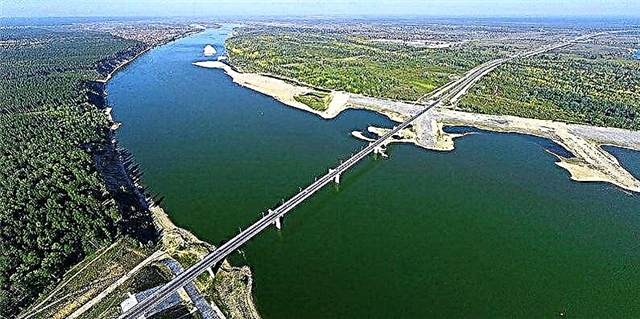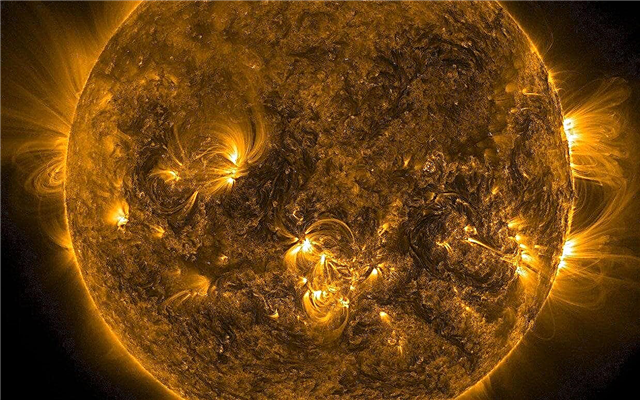
Ponds occupy a larger surface of the planet than land. However, the main part of the water that exists in nature - salty, fresh, occupies only a small fraction in the total ratio.
Most of the lakes on the planet are fresh, although they are also salty. And the list of the most profound of them will clearly demonstrate that nature is diverse in our country, and the lakes are both completely fresh, with crystal clear water, and salty no less than the seas.
Fifth place - Lake Taimyr

This lake is located on the peninsula of the same name, and its depth is actually relatively small - only 26 meters. It is with such a small mark that the demonstration of those incredibly diverse resources that Russia possesses will begin. This lake is unique in other respects as well - there are a lot of fish, including valuable breeds. The inhabitants and the flora itself, as well as the fauna, are comparable with Baikal and other nearby large reservoirs.
Fourth place - Lake Onega

This large lake is located on the territory of the Leningrad and adjacent areas, one of the largest lakes in Europe and Russia, and besides, it occupies the fourth place in depth. Depth indicators here reach 127 metersalthough the average is only 30 meters. Dozens of rivers flow into the lake, and only Svir emerges from it, which goes to Lake Ladoga, another large and deep body of water.
Third place - Lake Ladoga

This lake is also located in the Leningrad region, and its depth is more significant than the previous one, reaching an indicator of 230 meters. More than 30 rivers flow into it, and only one Neva flows out. This lake has its own harsh temper, there is often a strong excitement, which creates problems for ships and vacationers. There are islands here - conservation zones, and in general, these places have great historical value, like the surroundings of Lake Onega.
Second place - Caspian

Many will be outraged and say that the Caspian is not a lake at all, but a sea. But it is not so. The Caspian Sea is a full-fledged lake that has salt water, as in the sea, and even has an oceanic lithospheric plate under it. However, it has no communication with the ocean, either direct or across other seas, and therefore it is a lake. It is located behind the Caucasian ridge, which separates the reservoir from the Black Sea, although scientists do not deny that in the past it was a single system. The debate lies only in the period in which the Caspian separated from the Black Sea - relatively recently, in historical times, or several million years ago.
Be that as it may, but the depth of this reservoir is 1025 meters, and when compared with previous lakes, it leads with a strong margin. He has no drain, but fills it with more than 130 rivers and streams. It is worth noting that the Caspian is rich in commercial fish, and even under it there are significant deposits of oil and gas.
The deepest lake in Russia

The deepest lake in Russia is Baikal. Moreover, it is an undoubted leader both in depth and in volume of fresh water reserves, and it leads not only in Russia but also around the world. Maximum mark on the depth for this pond is 1642 meters. This is a lake of tectonic origin, which is formed by a crack in the earth's crust - as, for example, and Tanganyika in Africa, but it is at least 200 meters smaller than Lake Baikal.
Baikal is also one of the oldest lakes, since the period of its appearance is dated in the range of 20-30 million years ago. The lake is a record holder and for cleanliness. - the water here is transparent, almost untouched by human activity, since it contains microscopic crustaceans, which, in fact, ensure its purification. The inhabitants of this reservoir are also unique, many of them live only here and are not found anywhere else in the world. A lot of tourists come here - and I want to believe that this factor will not spoil the ecology of the area.
These are the deepest lakes of the country, each of which is unique and inimitable. One of them is generally considered to be the sea - this, of course, is the Caspian Sea, and the other claims to be the future ocean. At the place of Baikal, tectonic activity continues, plates here diverge - not quickly, by millimeters per year, but stably. The reservoir will expand and deepen, and it is obvious that at this point the mainland will tear once into two parts, and salty ocean water will flood into its bosom. Zero will become the sea, and then the ocean - such is its supposed evolution.But the Caspian, on the contrary, is likely to disappear from the face of the earth in a few million years. That is exactly what many scientists believe, but what will really happen is only life will show.












